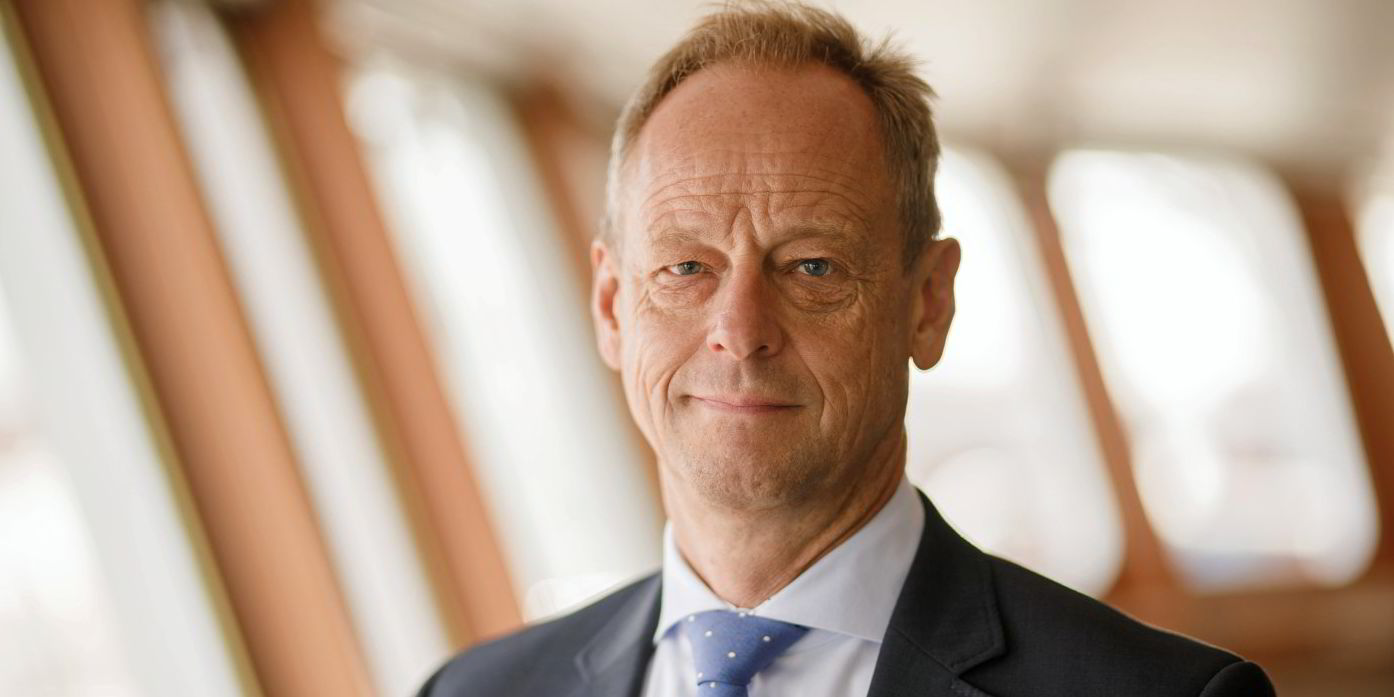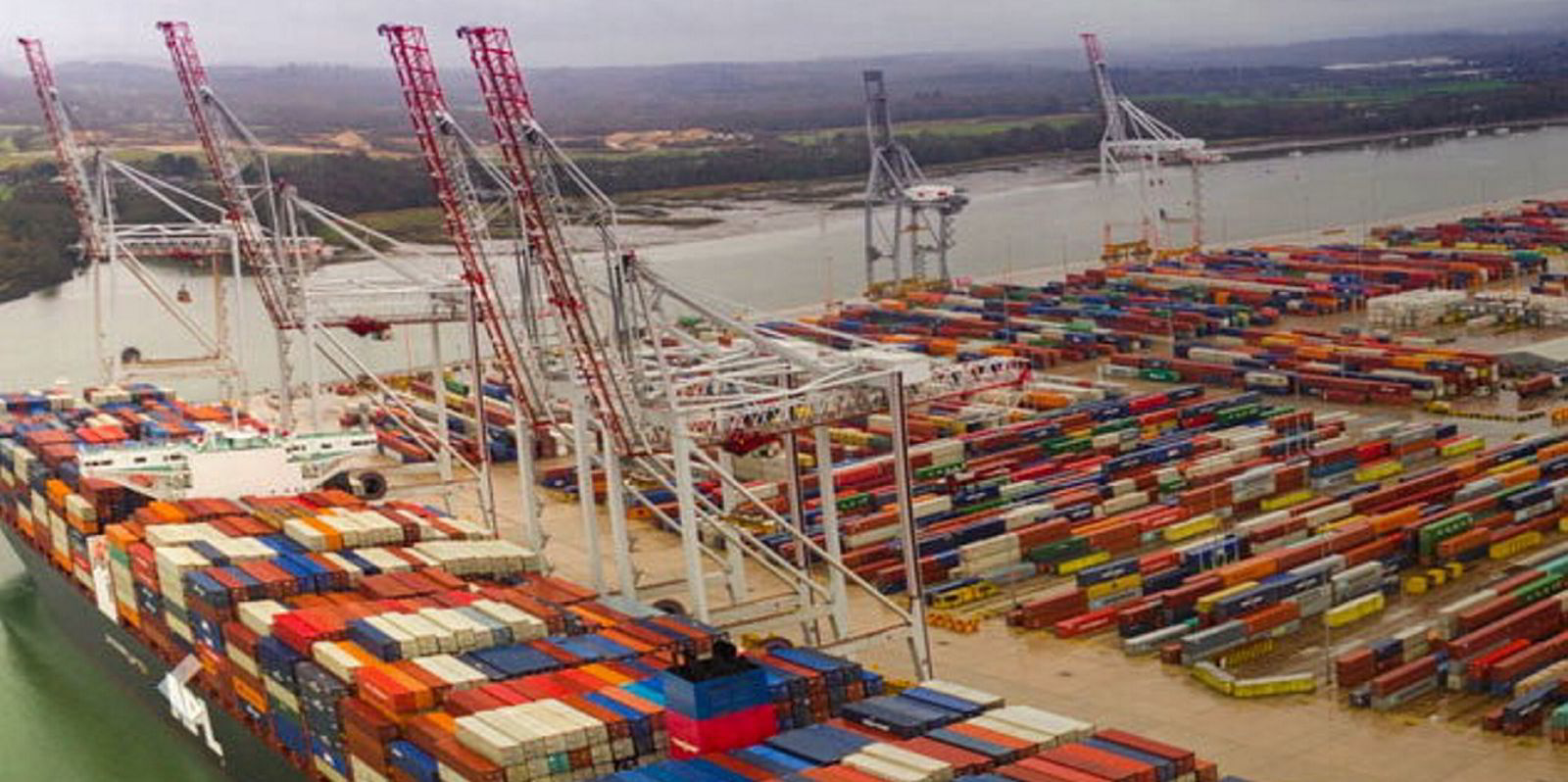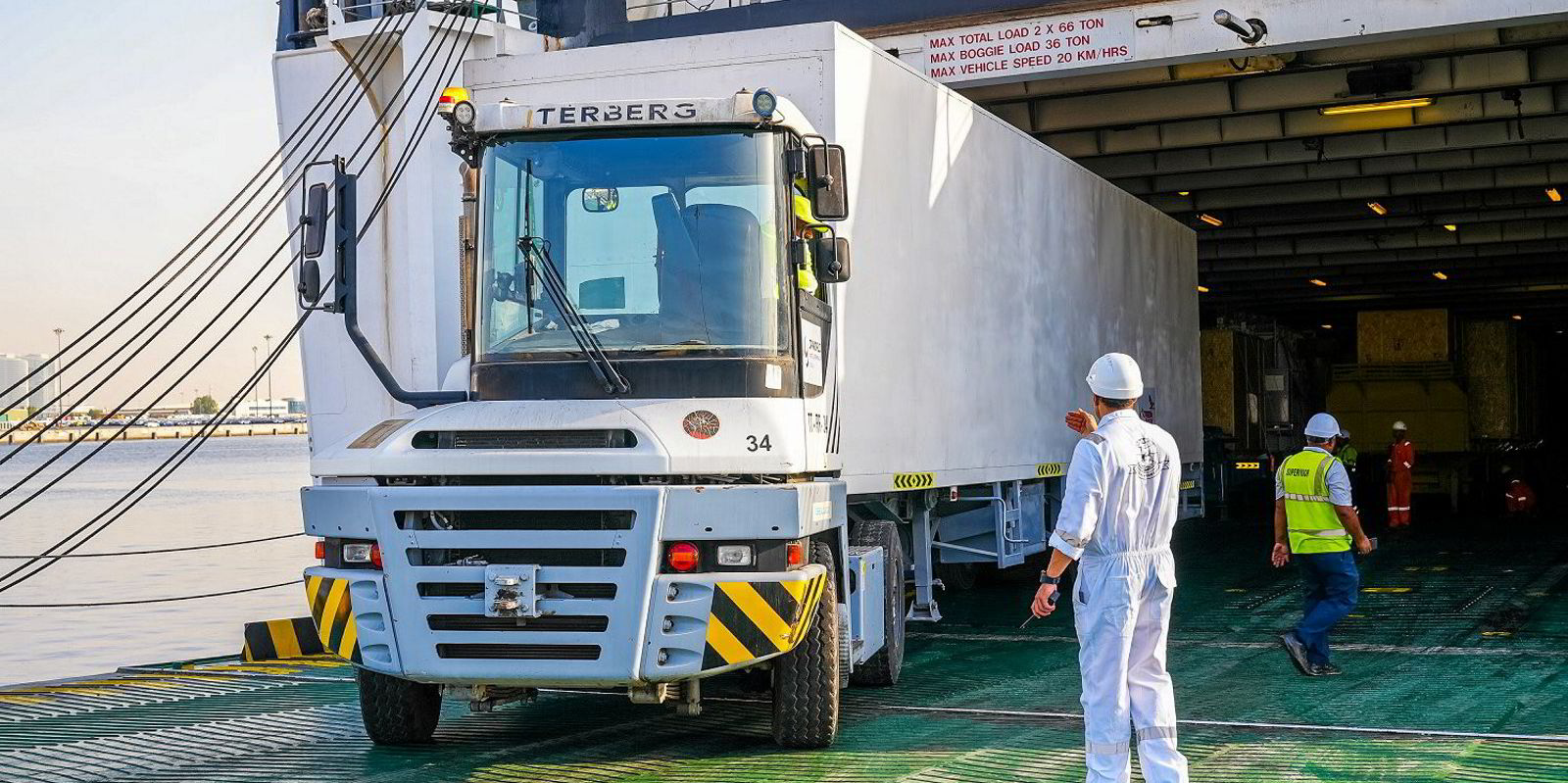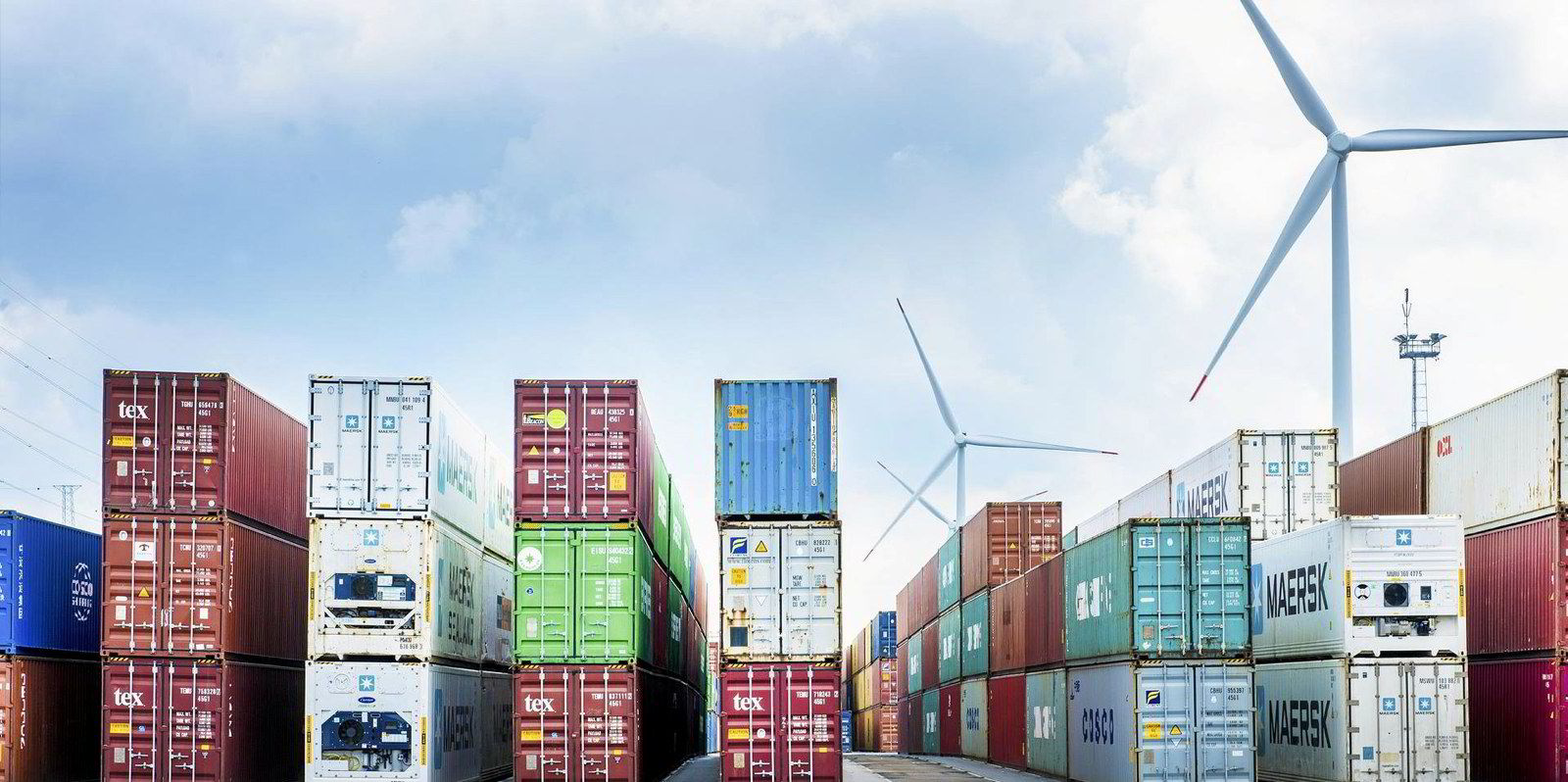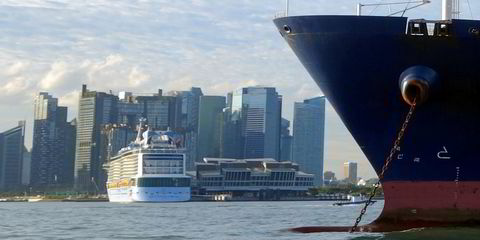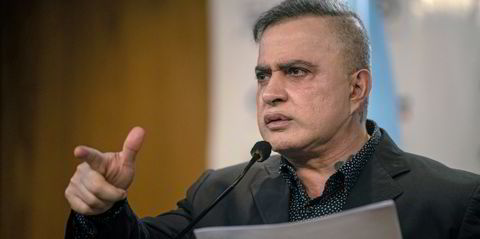DP World no longer wants to be referred to as a ports and terminals business. The Dubai giant calls itself a multinational logistics company that has a growing shipping portfolio with a strong presence in the ropax, ro-ro, offshore and liner sectors.
P&O Ferries, P&O Ferrymasters, P&O Maritime Services and Unifeeder are grouped under the marine services vertical. Unifeeder chief executive Jesper Kristensen, who joined the DP World roster when the feeder container operator was acquired in 2018, now works a dual role as head of Unifeeder and group chief operating officer of the marine services vertical.
“I’ve been entrusted with this task of creating and running the marine vertical,” he said in an exclusive interview with TradeWinds.
“It’s a very important step in the transformation of DP World from a ports and terminals-centric company to being more of an end-to-end logistics provider, although still with a very heavy focus on ports and terminals.”
DP World’s huge investment in shipping during 2018 and 2019 saw it not only acquire Unifeeder, but also buy P&O Ferries from investment company Dubai World, as well as Middle East offshore major Topaz, which was merged into tugboat operator P&O Maritime Services and rebranded P&O Maritime Logistics (POML).
The company’s move beyond ports and terminals was inevitable, Kristensen said.
“Just like so many others in the wider space of logistics, DP World determined that we needed to broaden our scope and involvement in the whole supply chain to remain a meaningful partner to our customers,” he said.
“To do that, we need to get closer to the cargo, closer to those parties that actually make cargo flow through our ports. We also need to take on the role of facilitating that cargo flow.
“It’s also about creating an ecosystem around your assets, around locations, around markets, where you become an attractive party and attractive gateway for moving cargo.”
DP World’s marine services vertical, a sister vertical to the ports & terminals and logistics verticals, has continued to expand on Kristensen’s watch. It bought a 77% stake in Singapore feeder container operator Feedertech and followed that up by buying the Transworld Group’s United Arab Emirates and Indian liner and logistics subsidiaries in deals that were structured so that they became subsidiaries of Unifeeder.
Kristensen is quick to dispel any notion that DP World’s marine services vertical comprises random companies with little in common.
“Some of the businesses have more in common than others. If you look at Unifeeder, P&O Ferries and P&O Ferrymasters, they are closely connected in terms of not only operating vessels, albeit different vessels, but they are still connecting infrastructure, ports and terminals. They are creating marine logistics chains,” he stressed.
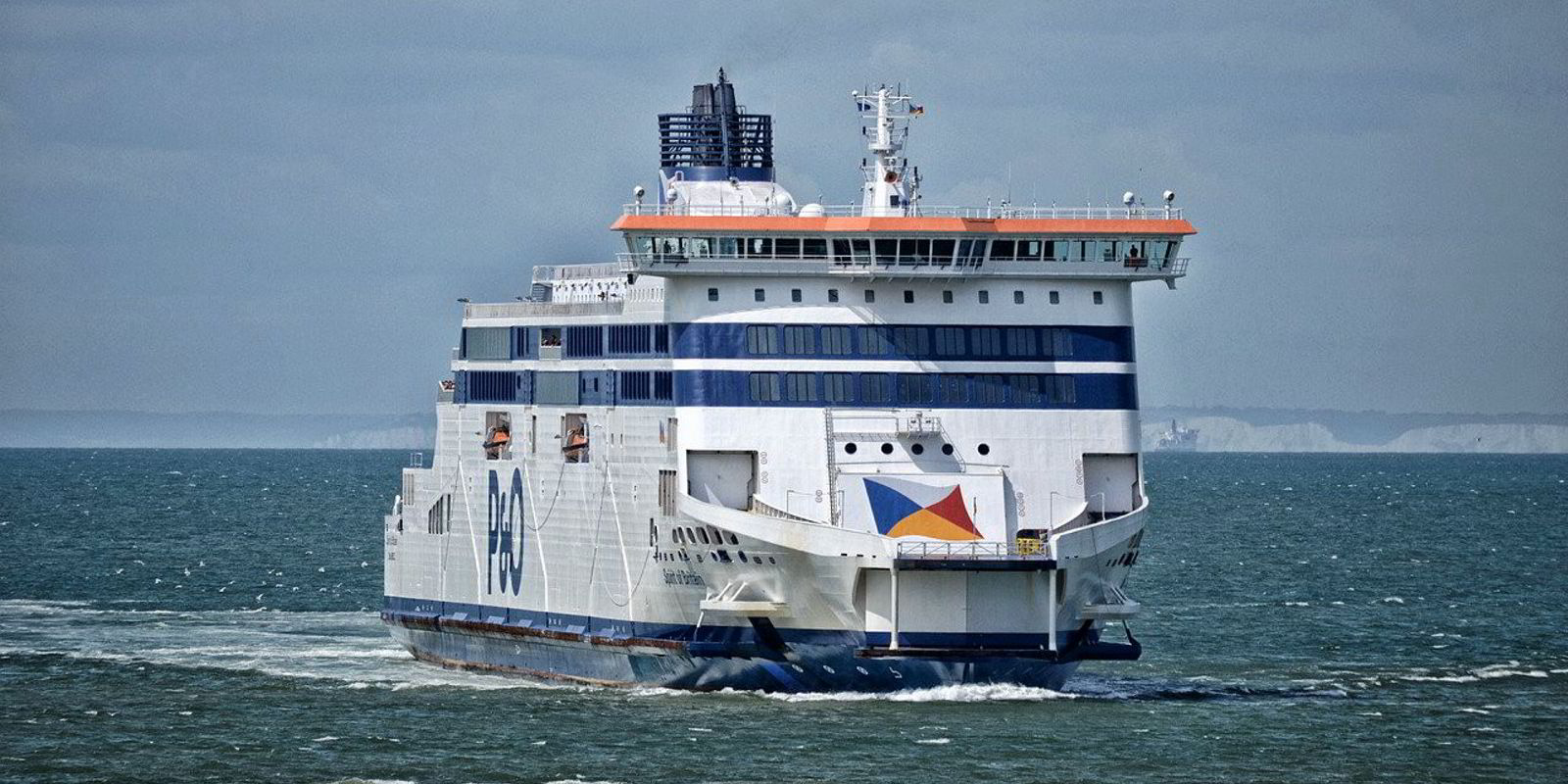
“The only real difference is that Unifeeder and P&O Ferrymasters only transport cargo, whereas P&O Ferries transports both cargo and passengers. And we should just remember that today the vast majority of what we move in ferries is actually cargo, not passengers, so they have quite a lot in common.”
P&O Ferrymasters was relaunched by taking the European shortsea multimodal activities of Unifeeder with Ferrymasters' roro activities. It transports containers and trailers, often on vessels belonging to P&O Ferries and Unifeeder.
“You can find in P&O Ferrymasters a number of examples of us opening up new corridors and new train connections to the European hinterland because there is either a customer requirement or there is a coverage requirement,” Kristensen said.
“P&O Ferrymasters has become one of the biggest true multimodal operators in Europe using ro-ro, lo-lo and rail to supply 800,000 loads of European cargo with logistics solutions door to door on an annualised basis.”
He pointed to the company as an example of how the assets of the marine vertical are being integrated into “something more than just businesses that happen to be sitting there”.
POML, a supplier of tonnage and services to the oil and gas sector, provider of tugboats and tailor-made solutions within bulk shipping and tankers, is less connected in terms of cargoes carried and services provided.
Outside of offshore and tugboats, POML operates a small product tanker in Norwegian waters for a US-based client and several small bulkers and container ships on behalf of a mining company in Papua New Guinea.
“We’re not out there in the open competitive tanker/bulker markets. We don’t have the scale and we don’t have the desire,” said Kristensen.
“What POML are good at is creating these tailor-made solutions where something very specific needs to be created and managed. It isn’t really transporting cargo the same way as the other entities, but it is the DP World representative in the bulk and non-commoditised markets.”
He made it clear that DP World is keen to build its marine services vertical, but cautioned that this will not be expansion for its own sake.
“It’s not a matter of just running around planting as many flags in different geographies as we can,” he said.
“We expand based on delivering solutions to the customers, to the cargo. When we do something, we do it for a reason, either because a customer or an asset or an ecosystem is missing something, or we can create new solutions.”
Unifeeder, he noted, has started several new services in Africa over the past two years.
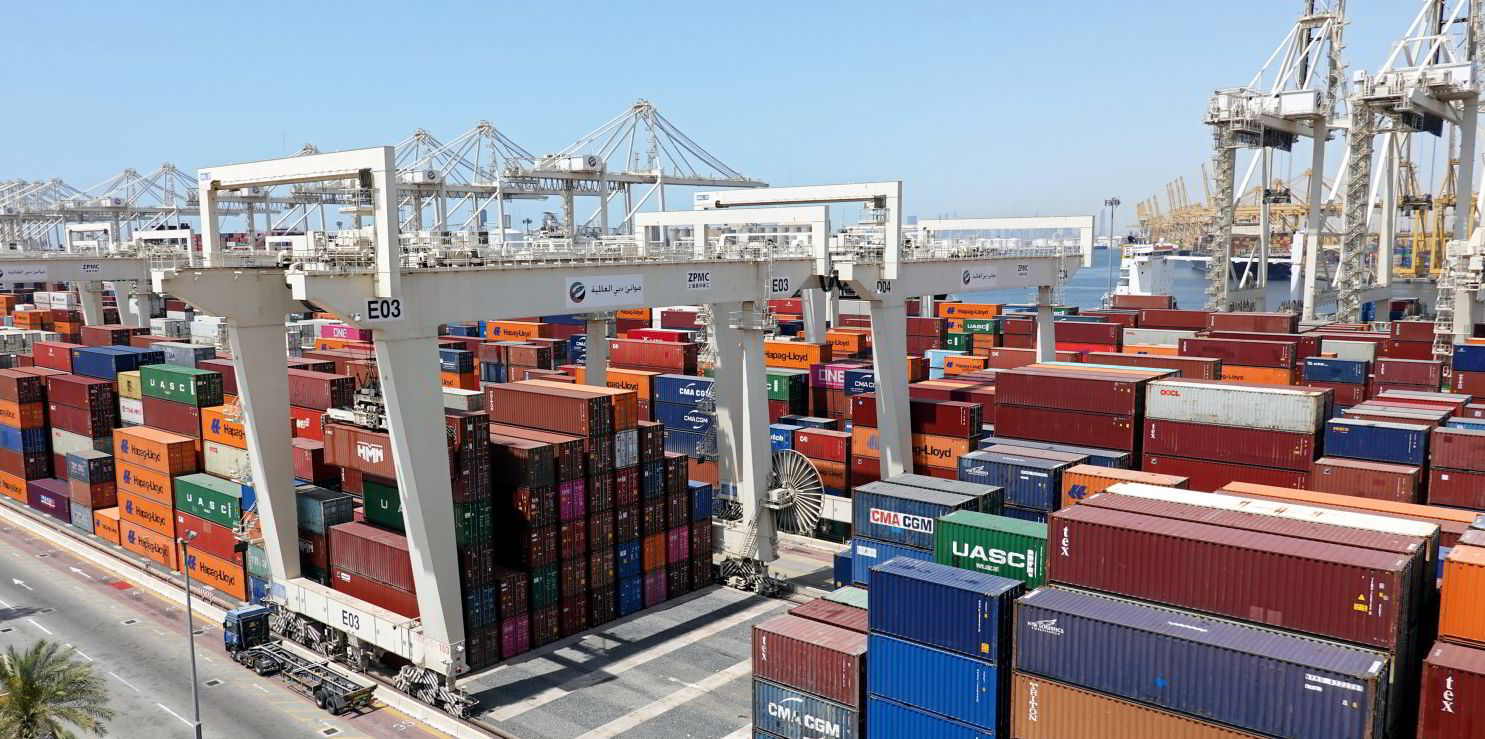
“They were created to connect [Dubai hub] Jebel Ali with certain parts of Africa that weren’t connected before. We linked them up in a triangle with India because we saw that this was where we could go out and offer new solutions that nobody else offered.”
Another example was when Unifeeder moved into the Caribbean, it did so because it wanted to create an ecosystem around DP World’s container terminal in the Dominican Republic.
On the acquisitions front, Unifeeder bought a controlling interest in Feedertech and the liner operations of the Transworld Group since it was acquired by DP World. They were merged into Unifeeder and branded accordingly
“You don’t need necessarily to do it all yourself, it can also be that you go and partner up, or in these cases, create a structure together with somebody together who is already pretty strong in a certain geography,” Kristensen said.
Some industry eyebrows have been raised as DP World continues to build up its marine services vertical, especially in the container space, where it runs the risk of being a competitor to the liner clients of its ports & terminals vertical.
Kristensen dismissed suggestions that this might put DP World in the difficult position of competing against its own customers for business.
“I don’t think that just because we create these ecosystems, we want to get rid of somebody else,” he said.
“In Jebel Ali Port you have the same number of operators as before DP Word acquired Unifeeder. Yes, we play a bigger role out here, because we’ve done these acquisitions, but it’s not because DP World will have sent somebody else home and said, ‘stay away, we don’t want you’.
“It is still very important that the ports and terminals are open to business regardless of what logo is on your funnel.
“I think that understanding this vertical view is a very important part of understanding what DP World is trying to do, and why it believes that it has a role to play in creating these ecosystems.”
